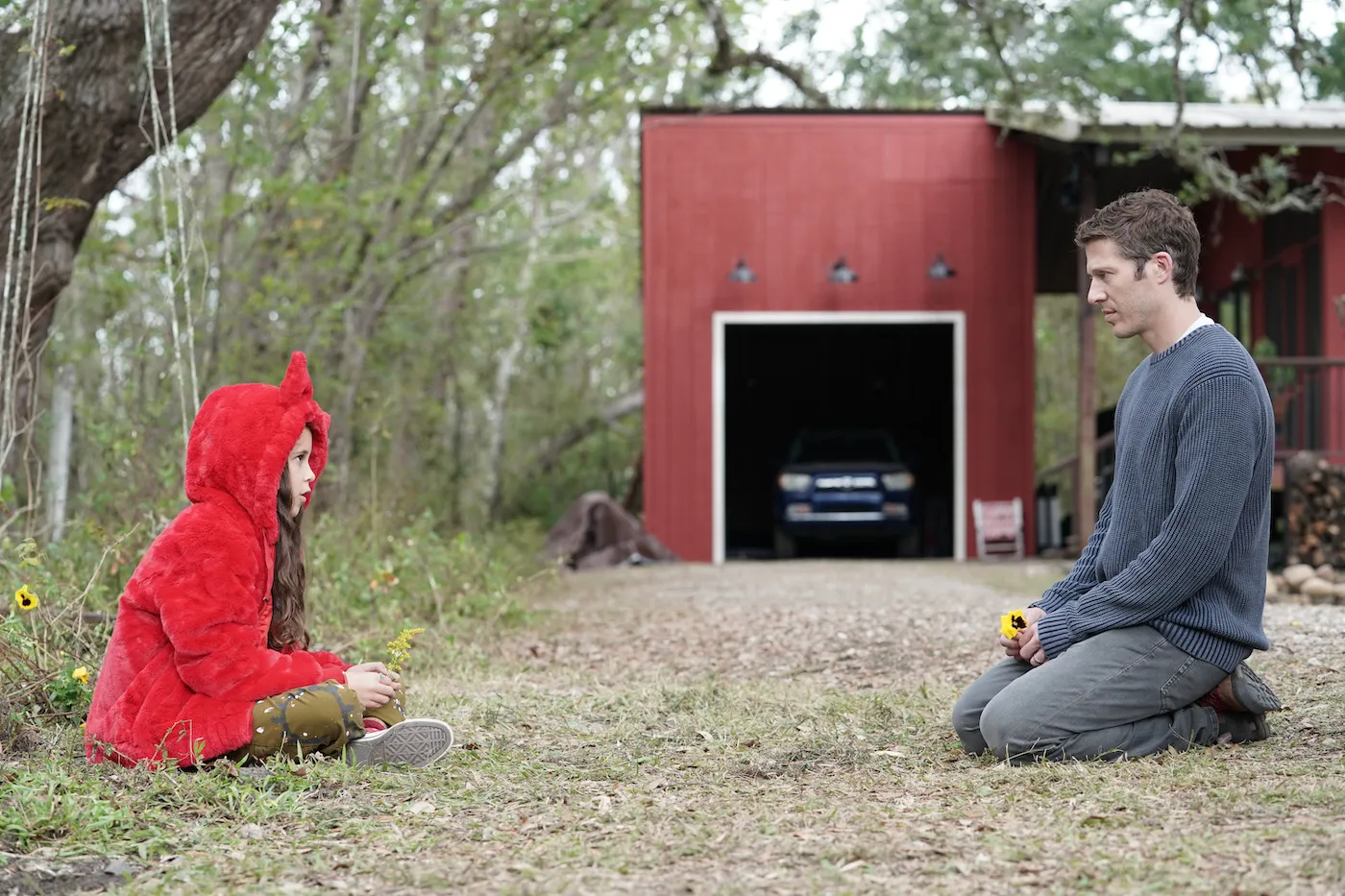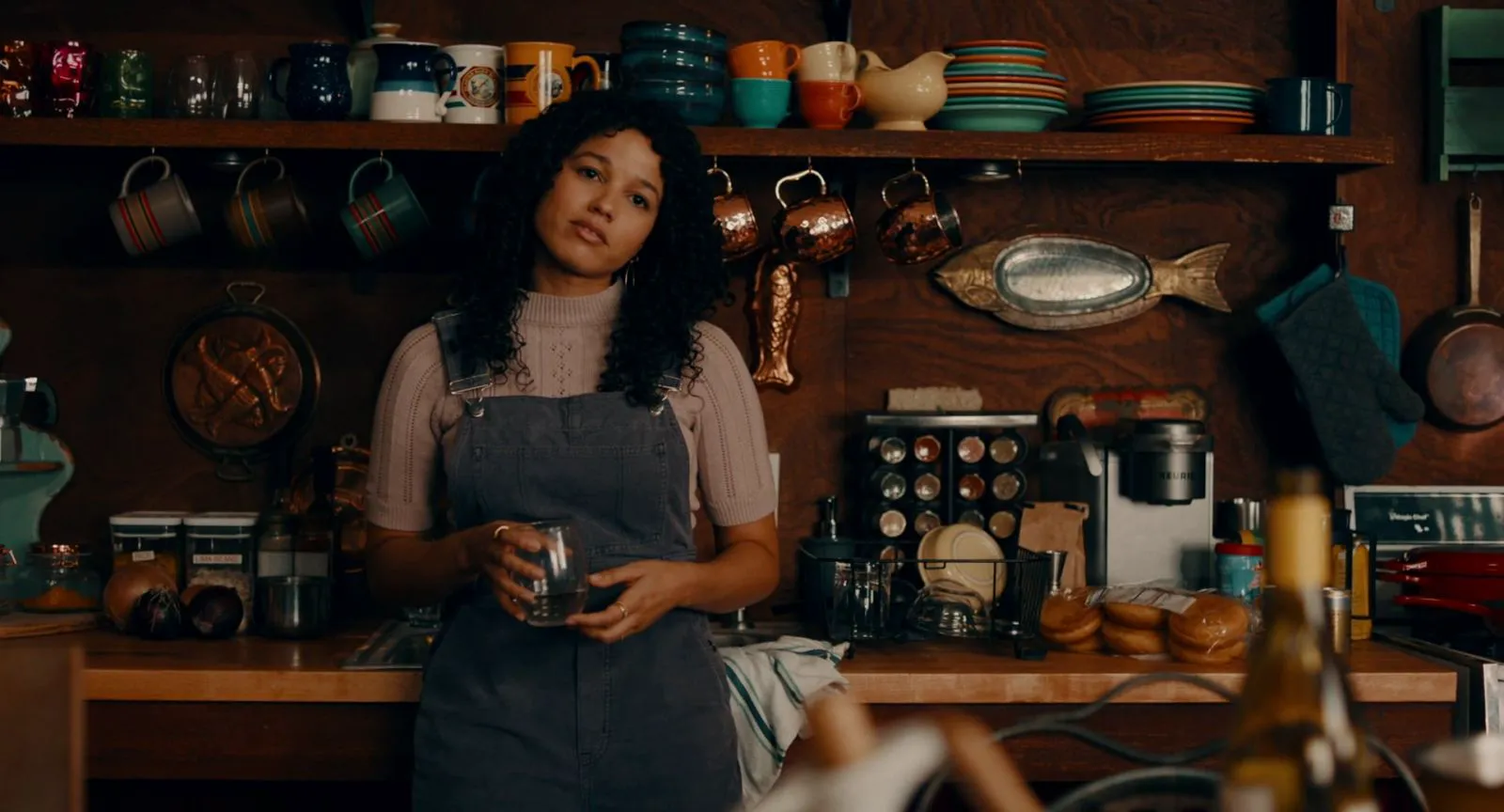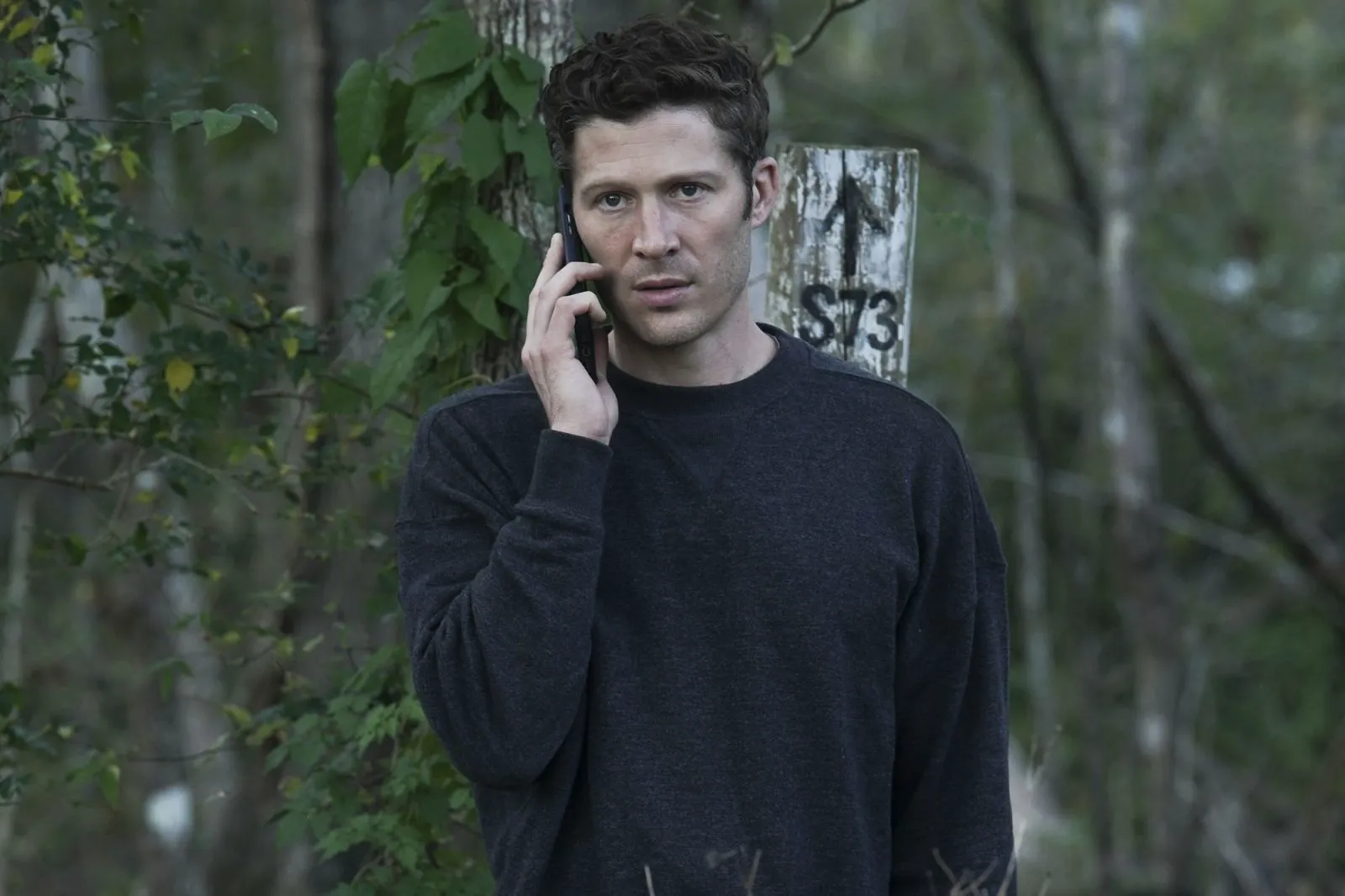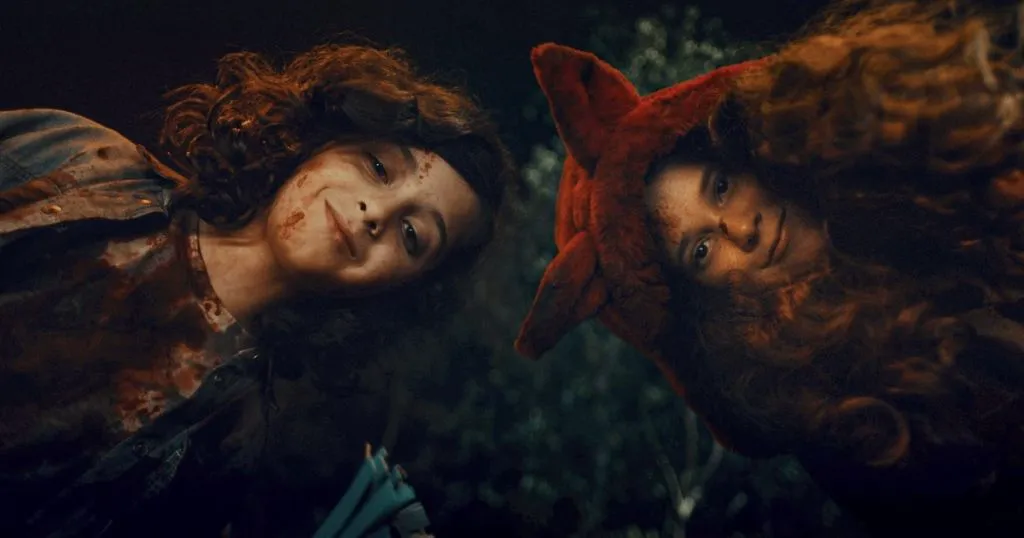Indie Horror Evolves: A Look at “There’s Something Wrong with the Children”
Horror filmmakers, once huddled together in genre anthologies like “Southbound,” are gradually finding their unique voices. David Bruckner helmed the new “Hellraiser,” Matthew Bettinelli-Olpin and Tyler Gillett are on their second “Scream” reboot, and Roxanne Benjamin, after her quiet feature debut “Body at Brighton Rock,” continues her career with reflections on parenthood in “There’s Something Wrong with the Children.” Released directly to streaming platforms via Blumhouse and MGM+, the film risks being dismissed as “disposable content.” While that assessment might hold some truth, fans of indie horror should give it a chance.

Zac Gilford as Ben in “There’s Something Wrong with the Children”
An idyllic weekend getaway takes a dark turn
The premise is simple: Margaret (Alisha Wainwright) and Ben (Zac Gilford) host their friends Thomas (Carlos Santos) and Ellie (Amanda Crew) and their children, Lucy (Briella Guiza) and Spencer (David Mattle), for a weekend in the countryside. The agenda includes outdoor games, barbecues, drinks, and hikes. During a forest expedition (where they literally hacked their way through the foliage with a machete!), the group discovers an old fort (or something similar) with a mysterious abyss. The abyss seems to emanate either impenetrable darkness or radiant light, depending on your perspective. The children are captivated by the depths, unnerving their parents and the trip’s organizers.

Alisha Wainwright as Margaret in “There’s Something Wrong with the Children”
Shifting the Focus: Parental Anxiety Takes Center Stage
It’s important to note a shift in perspective: the era of creepy kids with knives, pitchforks, and long hair lurking in basements and crawling out of television screens is largely behind us. While the children in this film do act strangely, subtly threaten the adults, and push the boundaries of disobedience to primal levels, Benjamin focuses on the parents, their sense of responsibility, and their feelings of obligation. Thomas and Ellie tactlessly suggest to their childless friends that it’s time to have kids, implying that their reluctance is merely an excuse: everyone wants to leave a genetic legacy. The subsequent ritual of corruption in the woods serves as a genre-driven commentary that reproductive choices are personal and not a topic for discussion around a campfire among those not involved in the process.

Zac Gilford as Ben in “There’s Something Wrong with the Children”
More Than Just Scares: Exploring the Fear of Parenthood
The film’s genre elements have disappointed some viewers, finding the children not as frightening as they’d hoped, the gore minimal, and the jump scares inconsistent. It’s difficult to argue with this assessment; “There’s Something Wrong with the Children” isn’t particularly effective as an adrenaline-pumping thrill ride. However, as a dynamic and textured exploration of the fear of parenthood, the film succeeds. Benjamin conveys a constant sense of anxiety: parents clutch their hearts when Spencer and Lucy approach the edge of the cliff, and Margaret and Ben imagine the worst-case scenarios when the children are out of sight for more than 15 minutes. Beyond the joys of parenthood, it brings a permanent worry about a child’s well-being, health, and mood. Is it any wonder that some people consciously choose not to take on the role of caregiver for the rest of their lives?

Briella Guiza as Lucy in “There’s Something Wrong with the Children”
Adult Dynamics and Unspoken Tensions
While Benjamin highlights the children’s strange behavior, she primarily focuses on the dynamics between the adults. The conflict between the two couples escalates, and minor misunderstandings gradually turn into fundamental disagreements. Thomas and Ellie try to revitalize their marriage by prioritizing their children, while Ben and Margaret can’t even discuss the possibility of becoming parents in private.
On one hand, “There’s Something Wrong with the Children” is straightforward and seemingly uninspired. On the other hand, Roxanne Benjamin is once again exploring a psychological state in a feature-length film. In “Body at Brighton Rock,” park ranger Wendy had to overcome her inner insecurities and weaknesses; now, Margaret is trying to defend her personal boundaries. While the film may lack in genre thrills, it excels in its dialogue and portrayal of contrasting perspectives on life. When politeness fades, the four seemingly eco-conscious, self-aware, and charming young people devolve into a bitter argument, foreshadowing the storm to come. The chosen perspective is noteworthy: reproductive function remains a significant tool of social pressure, and it’s no surprise that even conversations about parenthood can trigger panic. Perhaps, sometimes, it’s best to remain silent.